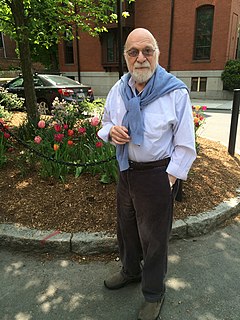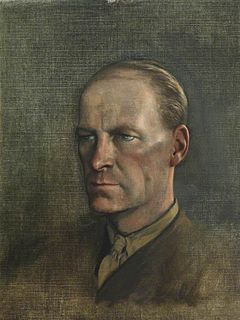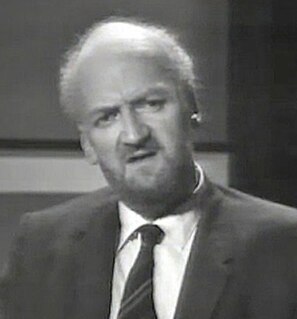 W
WJohn Langshaw Austin was a British philosopher of language and leading proponent of ordinary language philosophy, perhaps best known for developing the theory of speech acts.
 W
WOets Kolk Bouwsma (1898–1978) was an American analytic philosopher.
 W
WStanley Louis Cavell was an American philosopher. He was the Walter M. Cabot Professor of Aesthetics and the General Theory of Value at Harvard University. He worked in the fields of ethics, aesthetics, and ordinary language philosophy. As an interpreter, he produced influential works on Wittgenstein, Austin, Emerson, Thoreau, and Heidegger. His work is characterized by its conversational tone and frequent literary references.
 W
WPeter Michael Stephan Hacker is a British philosopher. His principal expertise is in the philosophy of mind, philosophy of language, and philosophical anthropology. He is known for his detailed exegesis and interpretation of the philosophy of Ludwig Wittgenstein, his critique of cognitive neuroscience, and for his comprehensive studies of human nature.
 W
WHerbert Lionel Adolphus Hart, usually cited as H. L. A. Hart, was a British legal philosopher, and a major figure in political and legal philosophy. He was Professor of Jurisprudence at Oxford University and the Principal of Brasenose College, Oxford. His most famous work is The Concept of Law, which has been hailed as "the most important work of legal philosophy written in the twentieth century". He is considered one of the world's foremost legal philosophers in the twentieth century, alongside Hans Kelsen.
 W
WNorman Malcolm was an American philosopher.
 W
WJesús Padilla Gálvez is a philosopher who worked primarily in philosophy of language, logic, and the history of sciences.
 W
WGilbert Ryle (1900–1976) was a British philosopher, principally known for his critique of Cartesian dualism, for which he coined the phrase "ghost in the machine." He was a representative of the generation of British ordinary language philosophers who shared Ludwig Wittgenstein's approach to philosophical problems.
 W
WFerdinand Canning Scott Schiller, FBA, usually cited as F. C. S. Schiller, was a German-British philosopher. Born in Altona, Holstein, Schiller studied at the University of Oxford, later was a professor there, after being invited back after a brief time at Cornell University. Later in his life he taught at the University of Southern California. In his lifetime he was well known as a philosopher; after his death his work was largely forgotten.
 W
WJohn Rogers Searle is an American philosopher. He was Willis S. and Marion Slusser Professor Emeritus of the Philosophy of Mind and Language and Professor of the Graduate School at the University of California, Berkeley until June 2019, when he was stripped of his emeritus status for having violated the university’s sexual harassment policies. Widely noted for his contributions to the philosophy of language, philosophy of mind, and social philosophy, he began teaching at UC Berkeley in 1959.
 W
WSir Peter Frederick Strawson, usually cited as P. F. Strawson, was an English philosopher. He was the Waynflete Professor of Metaphysical Philosophy at the University of Oxford from 1968 to 1987. Before that, he was appointed as a college lecturer at University College, Oxford, in 1947, and became a tutorial fellow the following year, until 1968. On his retirement in 1987, he returned to the college and continued working there until shortly before his death. His portrait was painted by the artists Muli Tang and Daphne Todd.
 W
WAlan Richard White was an ordinary language philosopher who worked mainly in epistemology, the philosophy of mind, and legal philosophy.
 W
WLudwig Josef Johann Wittgenstein was an Austrian-British philosopher who worked primarily in logic, the philosophy of mathematics, the philosophy of mind, and the philosophy of language.